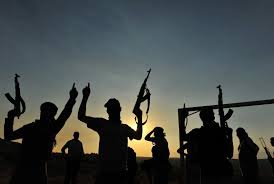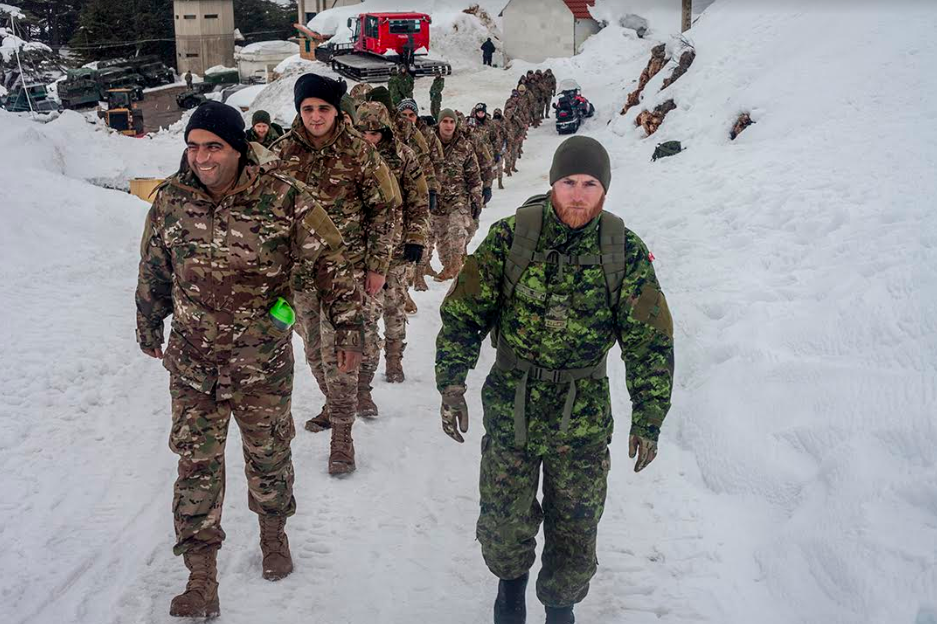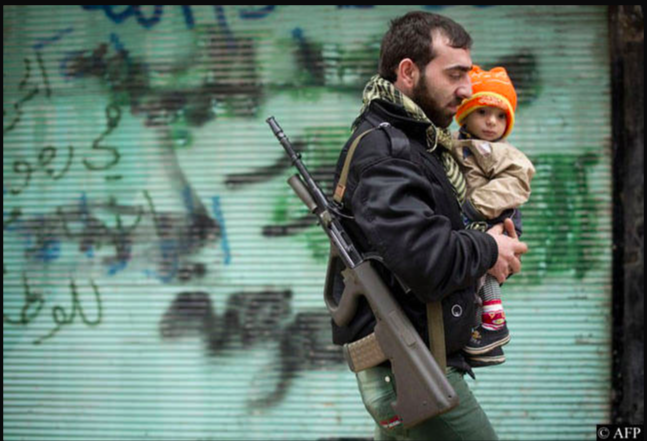“Do you know why the Americans and Israelis are winning and we Arabs always lose?” asked the emir. “Because we Arabs are emotional.”
Al-Nusra, by contrast, was an international organisation, and was “not built on emotions”. Its members should be ready to kill their brothers or cousins if they were proved to have to committed apostasy– The Guardian reports.
When we take a look at Syria’s geographical position, it can be seen that it is bordered by Jordan, Turkey, Lebanon, Iraq and Israel. Within Syria, intense security situations are increasing and domestic terrorist attacks are in action. Internationally, foreign advocacy for intervention is questionably uncertain in the views that the international community would be playing a game of risks if they were to plunge their hands in the domestic situations of countries like Syria.
Mainly focusing on Syria, rebel groups are forming quickly and recruitments are rising like never before. Various domestic situations in relation to politics and religion are all being fought on the ground. Lives are being taken away by Jihadists who are on a mission to create an Islamist state. Regimes are refusing to step down regardless of their own citizens’ plea. Aside from governments, rebels are indeed at the forefront of the battles on the ground of Syria. The leading militant groups that started operating during the rise of the Syrian Arab Spring nearly two years ago are Al-Nusra Front and the Free Syrian Army. The Jabhat al- Nusra, also known as Al-Nusra Front, is an Al-Qaeda affiliated group that is strategic and well-armed. It has about 6,000 foreign and domestic fighters. Some of its fighters are foreign Iraqi jihadists. The group is widely known for its reputation in secrecy and dominance. Its recruitments and military operations are administered for a long-term sustainability purposes. Its main mission is to fight against the Bashar al-Assad regime and create a religious state where the establishment of a ‘caliphate’ in Bilad al-Sham (the Levant) would exist. The Nusra Front has, however, uncertain relationships with other rebel groups. The Nusra Front has pleged its allegiance to the Al-Qaeda leader Ayman al-Zawahiri and its support for Al-Qaeda has caused some confrontation between itself and other rebel groups like FSA.
The largest opposition group, Free Syrian Army, numbers over 50,000 members in Syria. It is a self declared non- sectarian armed group. It is closely linked to the Syrian Opposition Coalition and its mission is also to overthrow the Al-Assad regime.
[captionpix align=”right” theme=”elegant” width=”300″ imgsrc=”http://natoassociation.ca/wp-content/uploads/2013/09/al-front.jpg” captiontext=”Al-Nusra Front as an international organization that is not built on emotions. “]
The difference between the Al-Nusra Front and the Free Syrian Army is that of religion and secularism. The FSA is believed to seek to take over the Assad regime for the purpose of building a secularist state while the Al-Nusra Front seeks to build a religious state based on the rule of Sharia. Domestically, the clashes are not only between the government and the militant groups, but also between the rebel groups themselves. As of right now, they have joined hands in working together to overthrow the Al-Assad regime. But what will happen afterwards if this mission becomes accomplished is still up for debate. Who will take over power? Will the two organizations continue to be friends despite differences or will it become another battle between the two? It is more likely that it could turn into another bloody battle on how a state should be governed.
The dichotomy of a ‘state’ would now become an issue between the two organizations. Indeed what a state should constitute is what causes clashes and separations among them. More interestingly, the security of the state is bound to collapse as the Assad regime continues to govern as a militia entity. If Assad continues to reign over Syria, the country is bound to remain with unrest and if one of the rebel groups takes over it is also possible that it would bring turbulence in the country. Rather than working together to build a stable and non-sectarian Syria, they seem more focused on holding power than creating a stable government. What continues to remains knowingly responsible for all this chaos and crisis in Syria is power and control of a state. As some realist may argue, it is part of our human nature to maximize the power of a state through any means. The need to dominate and the drive for power is part of our human behavior.




